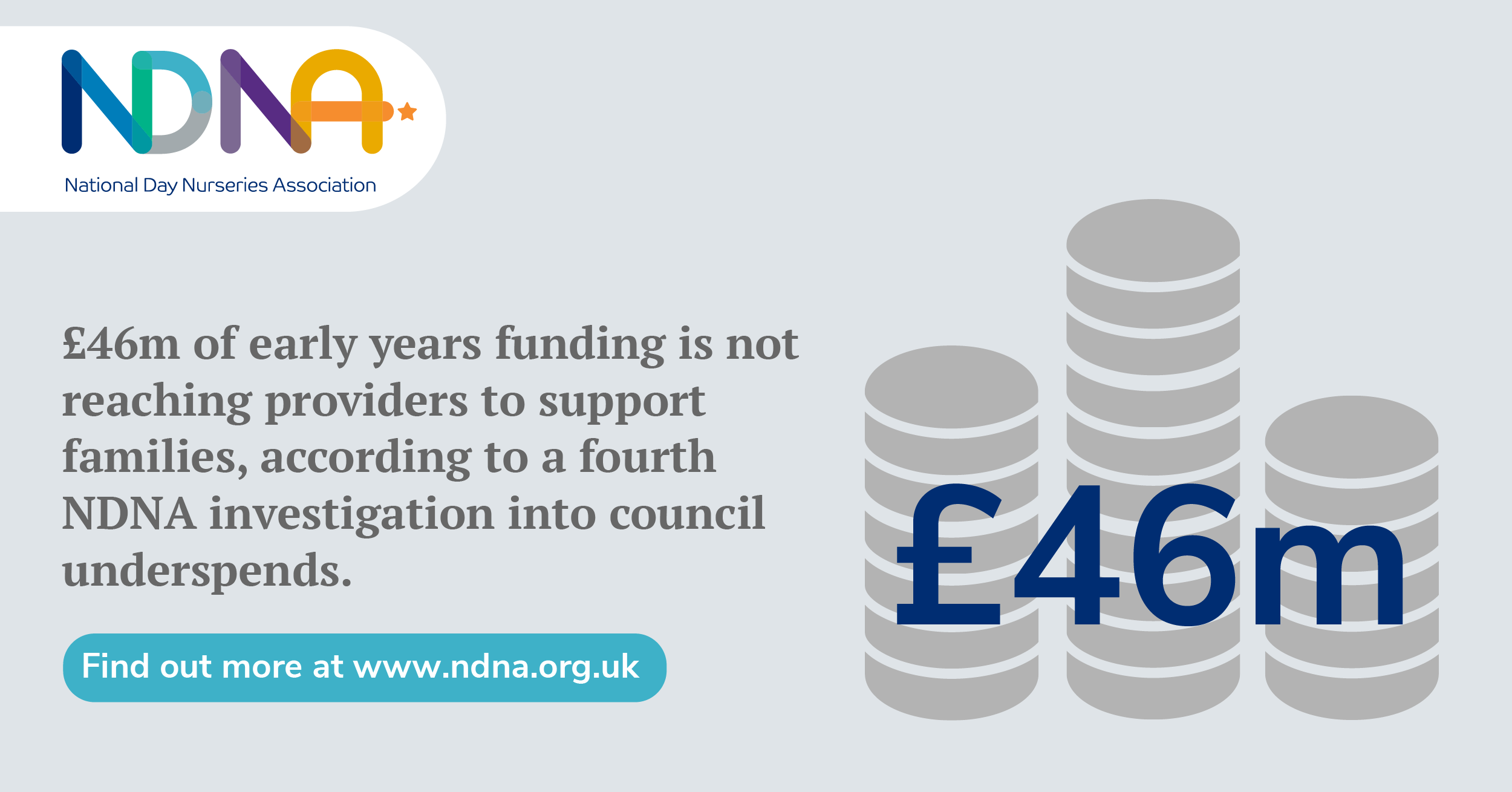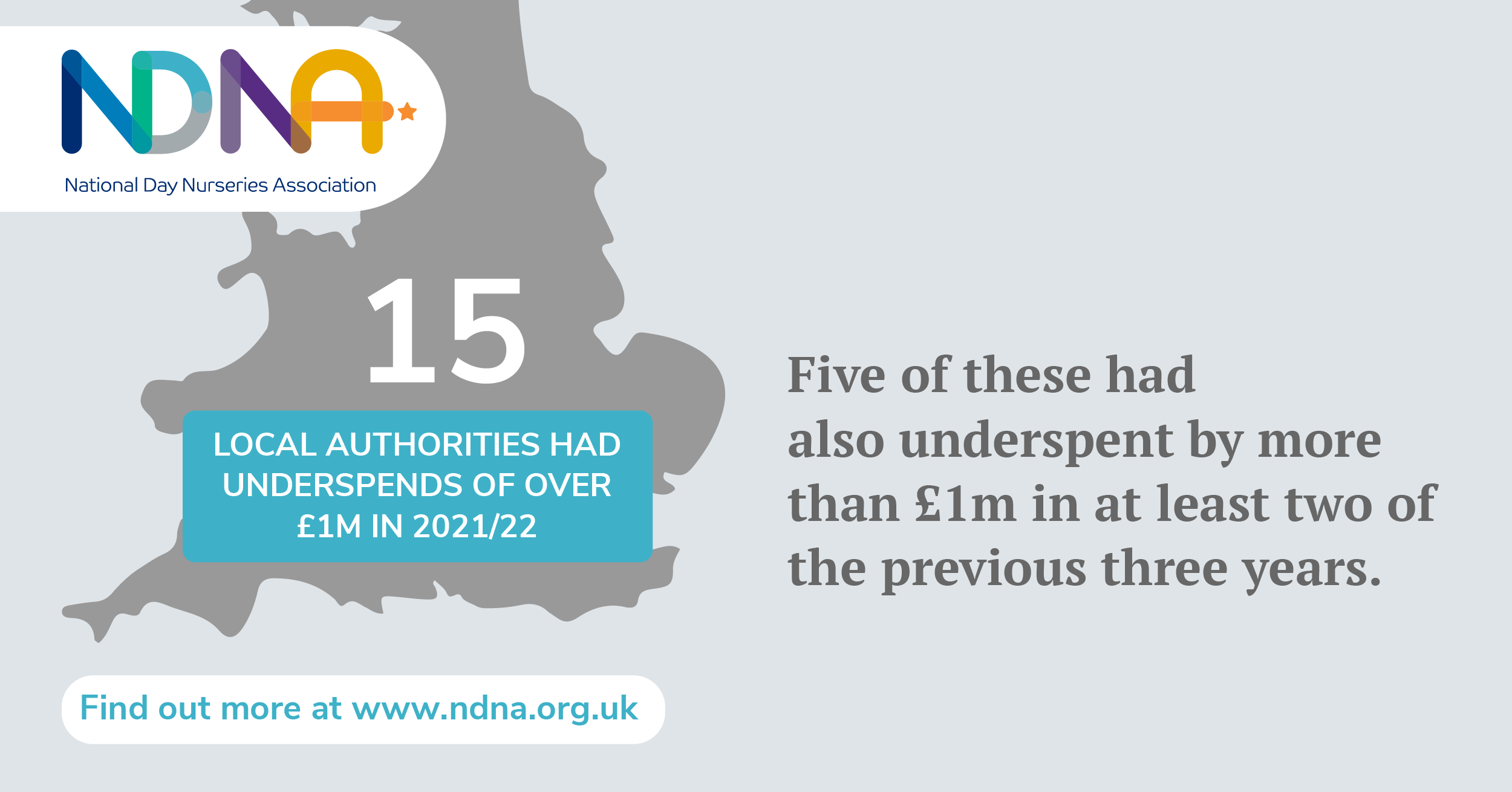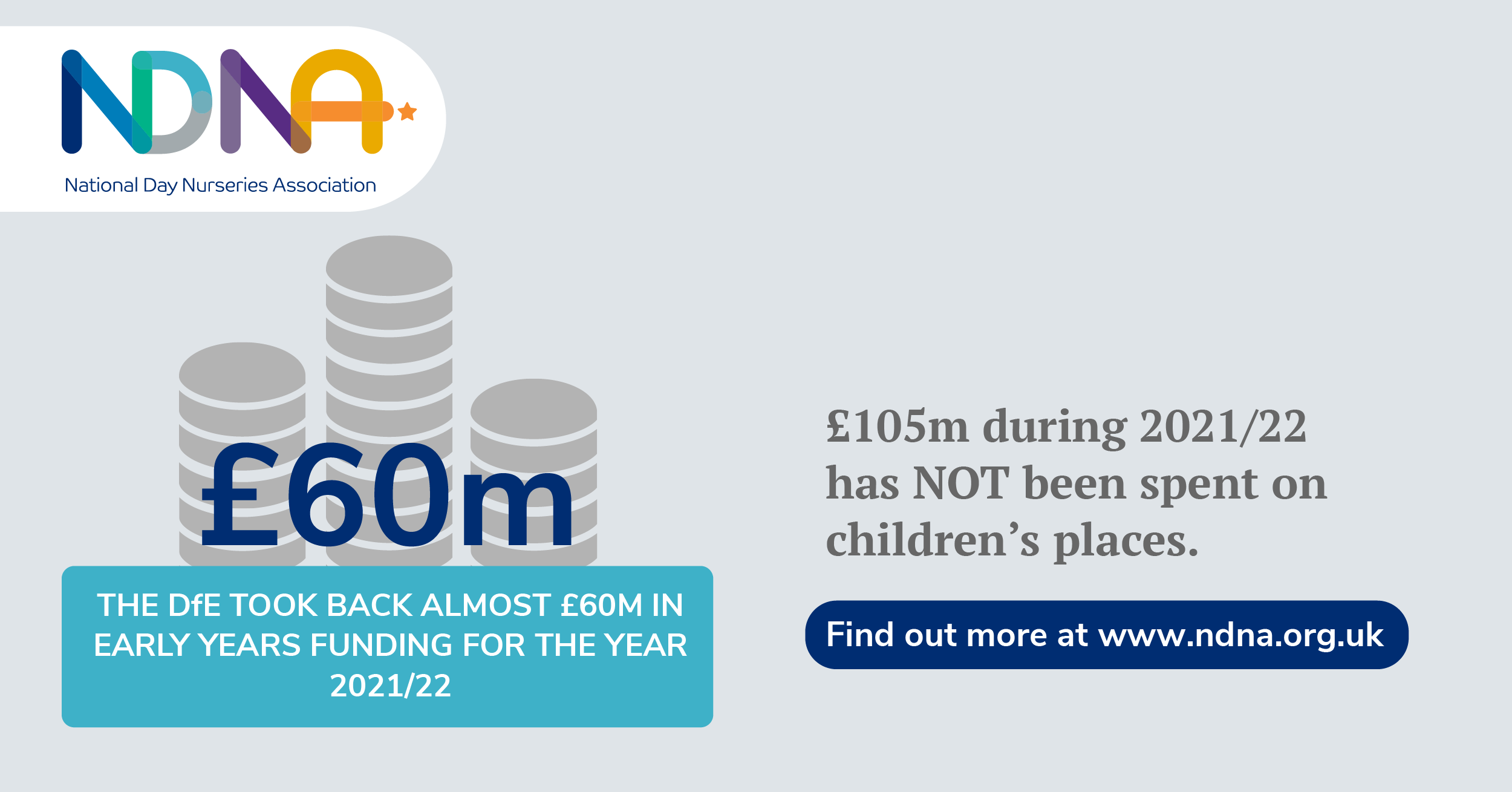
The NDNA has uncovered a total of £229m allocated for early years entitlements that was not spent on early years places during the financial years from 2018 to 2022.
For the fourth year running the NDNA sent Freedom of Information (FOI) requests to all local education authorities (LEAs) in England to ask if they had overspent or underspent their early years funding allocations for places in 2021-22. Responses were received from 149 out of 150 LEAs (Hartlepool did not respond).
In total, NDNA found that £46m of early entitlement funding was unspent by 92 councils, with just over a third of them using the money to offset deficits within their Designated Schools Grant to the tune of £15m. Almost half of these councils used £5m to set against their High Needs Block losses.
The Department for Education (DfE) has also 'clawed back' £60m in funding that was allocated for early years entitlement places for 2021-22, the findings also reveal.
Nursery World has asked the DfE to explain why this money was taken back by the department but has not received an explanation.

Thirty of the 92 LEAs that underspent their early years funding put the unspent £15m into their reserves. Just 11 councils gave any of this money back to providers in the form of a funding rate boost or one-off grant. A further 16 had not decided, or did not tell NDNA how they would spend the money.
A total of 43 LEAs have ended up with a surplus four years in a row. Just six of these councils gave any of this money back to nurseries in 2021-22.
Fifteen local authorities underspent by £1m or more – Islington has consistently reported an underspend of more than £1m for the last four years. A further four councils had a million plus underspend in three of the last four years.
Purnima Tanuku, chief executive of NDNA, said, ‘This is our fourth year investigating underspends in early years funding and once again, the results are shocking.
‘Lessons still aren’t being learnt, with too much of the funding meant for early education and childcare places being used to offset other deficits or put into reserves. Almost half of those who reported an underspend have done so since we started looking into this four years ago.
‘The same thing keeps happening year on year. Of the 15 councils who had more than £1m underspends this year, four of them have been in this position for three of the last four years.’

Other key findings from 2021/22 NDNA underspends research
- 15 LEAs reported an underspend of more than £1m – one of these has underspent by £1m for four years running; four other LEAs have underspent by £1m in three of the last four years
- 45 LEAs overspent their early years budget by £23.1m
- 6 LEAs overspent by more than £1m compared with just one in the previous year – Leicestershire overspent by £4.2m.
- Net DfE adjustment figure shows that £59.3m given to LEAs in early years funding allocations was taken back by the department.
- A combined amount of £59.3m plus underspends of £45.8m means that £105.1m earmarked for early years places in 21/22 was not spent on these places.
The research also found a rise in the number of councils that had overspent their early years funding in 2021-22, with the majority of those receiving a funding rate of less than £5 an hour for an early years place.
The research found that 45 councils had overspent by £23m compared with 32 overspending the previous year by £8m. Of these 35 had a funding rate of under £5 and 14 had the lowest funding rate of £4.44.
‘We are also concerned at the number of local authorities who are overspending, particularly those with huge overspends,’ Tanuku said. ‘Providers are now being penalised as councils have no choice but to recoup their losses from future funding. Three-quarters of councils with overspends had a low funding rate, which could help to explain how they ended up in this position.’
The FOI request also asked about any adjustments made by DfE either during the year or post-year, once accounts had been finalised.
NDNA’s report discovered that during 21-22, the DfE ‘clawed back’ £89m but gave an extra £7m of funding. After the financial year, the DfE removed a further £8m but gave back £31m. Overall the net adjustment figure for 21-22 was £59.3m, which was returned to central government.

Tanuku added ‘The government regularly shout about how many millions they have invested in early years funded places and yet we see that over £105 million has not reached providers on the front line.
‘NDNA has been calling for this money to be ringfenced so it can only be used for early years places. At a time when providers will be under pressure to get ready to deliver funded places for all two-year-olds in less than a year’s time, they should be better supported by councils. This system needs fixing and reforming now if the early years sector is going to have a hope of delivering the Government’s new plans.
‘We need a transparent and clear system that has children at its heart and works for both parents and providers, in which we know what money is going where.’
A Department for Education spokesperson said, ‘The government is making the single biggest ever investment in childcare in our country’s history. We are determined to support as many families as possible with access to high-quality, affordable childcare.
‘Whilst we are providing higher rates to providers from September, we are clear that any underspend from a local authority’s early years budget must be carried forward to the next financial year, and remain within the education budget.’
- The full report and summary spreadsheets with responses from each local authority by region are available at www.ndna.org.uk/EYunderspend









